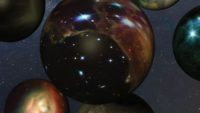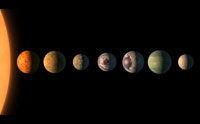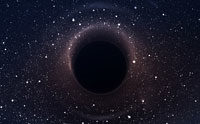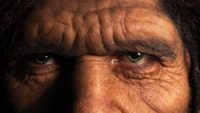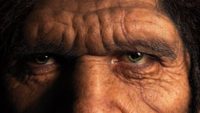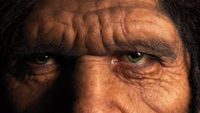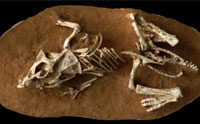By Dr. Timothy L. Clarey The evidence for a large impact at Chicxulub may not be as strong as generally believed. A case can also be made that there was no impact. …read more Read more here: AIG Daily
We went to the moon—isn’t Mars next? ICR Astrophysicist Dr. Jason Lisle gives his perspective on the difficulties in traveling to and colonizing Mars. More… …read more Read more here: icr.org
The discovery of seven planets orbiting Trappist-1, with three in the habitable zone, has given rise to claims of habitability. However, neither life nor even water have been found there. …read more Read more here: creation.com
By Ginger Allen This article addresses these and other questions regarding post-Flood plant survival and dispersal, and consider mechanisms by which this may have occurred. …read more Read more here: AIG Daily
A tiny lizard can perform feats that superheroes can only dream about. …read more Read more here: creation.com
Did you know that the electrostatic properties of spider webs, and a ‘quirk of physics’, causes them to actively spring towards airborne objects? …read more Read more here: creation.com
Many believers in nature’s capacity for evolutionary innovation think the sky’s the limit-yet their allegedly ‘naturalistic science’ writings betray a faith in the abilities of ‘Nature’ that borders on paganism. …read more Read more here: creation.com
By Dr. Danny R. Faulkner Three of the planets found orbiting TRAPPIST-1 were within its habitable zone, the area around a star where liquid water might exist on a planet’s surface. …read more Read more here: AIG Daily
Secular scientists are excited about the recent detection of seven Earth-size planets in the constellation Aquarius, a nearby solar system. According to the report, three of the planets orbit a parent star, called TRAPPIST-1, at a distance that would allow water to exist on their surface. Is their excitement merited? More… …read more Read more here: icr.org
Do black holes really exist? If so, what are they? ICR astrophysicist Dr. Jason Lisle sheds light on these mysterious celestial objects. More… …read more Read more here: icr.org
Scientists from the University of Arizona recently announced that what is now the Sahara desert was once wet and green and extended as far north as the Mediterranean Sea. More… …read more Read more here: icr.org
Windy conditions after the Ice Age may have caused the demise of these iconic animals. …read more Read more here: creation.com
By Dr. Elizabeth Mitchell Let’s look at the molecular clock credited with resolving the timeline and see if we are “closer than ever to a timeline for human evolution.” …read more Read more here: AIG Daily
The parrot’s missing relatives can’t be found. …read more Read more here: creation.com
By Heather Brinson Bruce Evolution is hard-pressed to explain this prickly little digger. That’s because the Creator made it like no other single animal. …read more Read more here: AIG Daily
By Dr. Andrew A. Snelling Many scientists claim the fossil record shows many mass extinctions separated by millions of years. Does the Bible give a better explanation? …read more Read more here: AIG Daily
Astronomer Stephen Kane hunts for signs of life in outer space. His team researched a distant star called Wolf 1061. Exoplanets (planets outside our solar system) orbit Wolf 1061, and one of them held the promise of liquid water, a prerequisite for life. More… …read more Read more here: icr.org
By Todd Charles Wood Recent articles have questioned the validity of hominin baraminology studies that place Homo naledi in the human holobaramin. …read more Read more here: AIG Daily
By Jean O’Micks Baraminic analyses suggest that both H. naledi and H. floresiensis are not part of the human holobaramin. …read more Read more here: AIG Daily
By Matthew McLain The best hypothesis for the origin of the H. naledi assemblage in the Dinaledi Chamber is still intentional burial/disposal by other H. naledi. …read more Read more here: AIG Daily
Is the Tibetan snow lotus evolving to elude detection? …read more Read more here: creation.com
A functional body plan is the key to life; without it, an embryo will not survive. …read more Read more here: creation.com
Prevailing secular theory considers birds to be living dinosaurs, but new science is hatching to support the stark differences between these creatures. The data demonstrate dinosaurs were more likely cold-blooded like all modern reptiles. More… …read more Read more here: icr.org
By Prof. Stuart Burgess Our ability to communicate and understand, feel emotions, and think rationally shows that we are created for a purpose—to have a relationship with God. …read more Read more here: AIG Daily
The idea that spacecraft can be built that can travel vast distances in a short time fails at a theoretical level, despite what Hollywood and evolution would have us believe. …read more Read more here: creation.com
Scientists are searching for answers to questions which in theory they shouldn’t even have to ask, especially in regards to gravity. …read more Read more here: creation.com
These exquisite fliers have an incredible ability to appear stationary to their target. …read more Read more here: creation.com



























